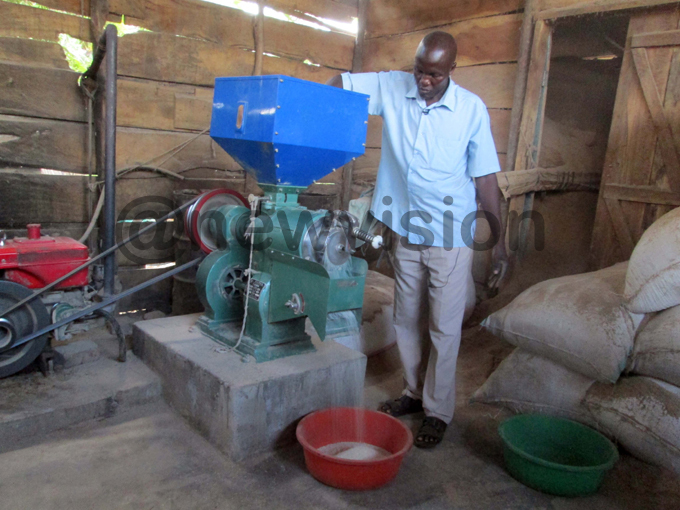Sasakawa Global to help rice farmers boost production
In 2001 when Sasakawa Global 2000 visited Kamuli, Mitala’s life changed for the better when he was identified as one of the famers who could grow rice.
Johnson Mitala was an ordinary farmer in Kamuli district. He used to grow maize and cotton which he says were bringing in enough money for his family.
In 2001 when Sasakawa Global 2000 visited Kamuli, Mitala's life changed for the better when he was identified as one of the famers who could grow rice.
Mitala, a father of six children joined the Kamuli Kamu Kamu Association and started growing Narric rice which is resistant to diseases.
Today he earns big and is able to employ six people. Mitala has also been able to pay school fess for his children and now also a boda- boda business.
Mitala is not alone. Morris Engin, a farmer from Lira district ventured into rice growing in his district. Unlike Mitala, Engin grows a rice variety called TXD, yielding a capacity of about seven tonnes on average production per hectare.
He says the crop is resistant to pests and diseases.
"It is a very good variety and I encourage farmers to grow it and also use natural fertilizers," Engin said.
The scheme is about 6,000 hectares. However, per acre, Engin says they get about 30 bags each costing about sh1,200.

Yusuf Lubale, a rice farmer in Kamuli demonstrates how a rice milling machine is used to remove stones and dust from the rice.
"Per acre, we get about sh3m and after investing, one earns about sh800,000. When you grow rice, the production cost per kilogram is sh250 to sh300," he adds.
Currently, it is selling at sh1,300, giving a profit of sh1000.
"I think rice growing is a Engin explained adding that this has helped improve the house hold income and reduce the high rate of unemployment.
Engin who is also the District Coordinator at Olweny rice Irrigation Scheme , Abolet, Bair noted when farmers see what is on ground, get training in crop productivity, post harvest handling and crop production and value addition, they get to earn immediately.
Since the registration of the rice scheme in 2001, the farmers are happy with it and has recorded 15,000 farmers. It has 1800 acres under irrigation, seven dams of water reservoirs and the project covers 30kilometres squared.
Global 2000 is helping to train farmers on agronomic practices to better improve the quality of their products.
Citing challenges such as; rice grows very tall and when it is windy they tend to fall down hence being fed on by animals and birds. In addition, Sasakawa Global 2000 is helping to train farmers on agronomic practices to better improve the quality of their products.
Today, rice is grown mainly by small scale farmers almost throughout the country, but also with large scale farmers for commercialisation.
For Yusuf Lubale, a rice grower in Kamuli, acquired a rice machine at a loan free interest and he has managed to help the people within the area and its neighbouring districts to improve the quality of their rice.
Figures from the Ministry of Agriculture indicate total production of milled rice by 2014 was 154, 050 metric tonnes and a total consumption rate at 215,707 metric tonnes.
According to James Mulangira of SASAKAWA Global 2000, the training and sensitising of rice farmers helped them adopt best practices in a bid to achieve high yields.